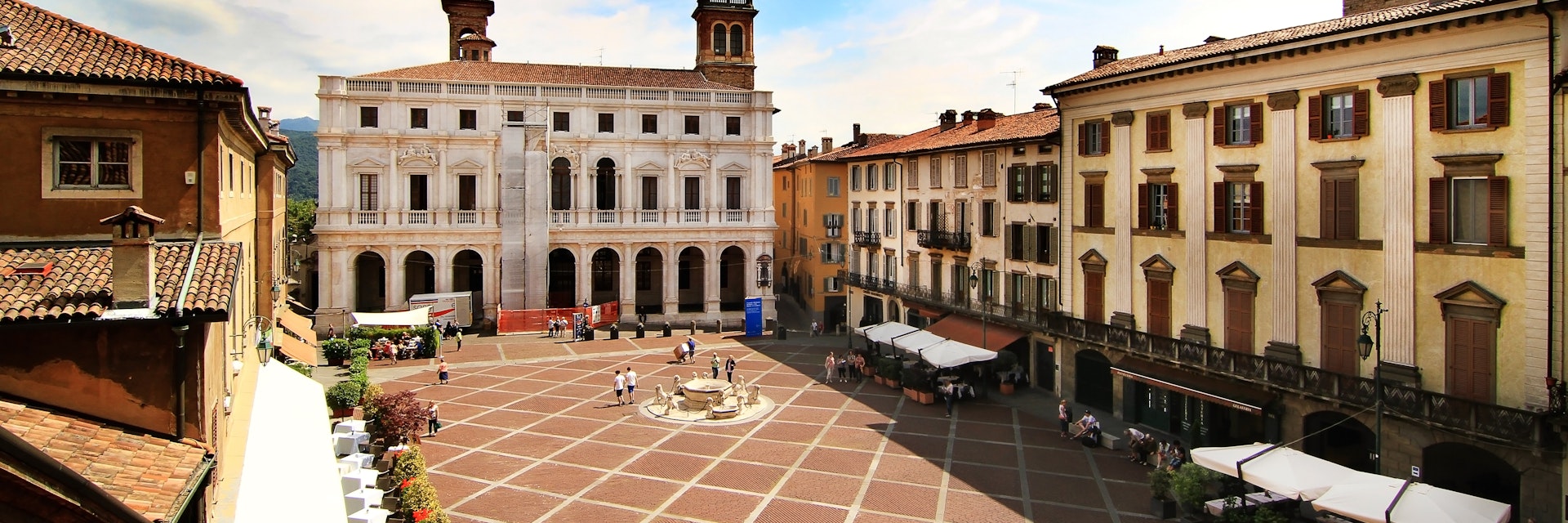The Upper Town's beating heart is the cafe-clad Piazza Vecchia, lined by elegant architecture that is a testament in stone and brick to Bergamo's long and colourful history. Its highlights include the Palazzo Nuovo, Palazzo del Podestà, Palazzo della Ragione and the Torre del Campanone. Tucked in behind the secular buildings of Piazza Vecchia, Piazza del Duomo is the core of Bergamo's spiritual life
Le Corbusier apparently described Piazza Vecchia as the 'most beautiful square in Europe' – good thing they didn't let him try out any of his ideas on it. Had he done so, he'd have been following a certain precedent. The Renaissance square was created by levelling the huddle of medieval housing that once stood there.
The white porticoed building on Via Bartolomeo Colleoni, which forms the northern side of the piazza, is the Palazzo Nuovo. Designed in 1611 by a brilliant architectural mind from Vicenza, Vincenzo Scamozzi (1548–1616), it was not actually completed until 1928. Long the seat of the town hall, it has been a library since 1873. Diagonally opposite, on the northwest side of the square, the Palazzo del Podestà was long home to Venice's representative in Bergamo.
Looming overhead, the massive, square-based Torre del Campanone tolls the old 10pm curfew. Originally raised in the 12th century and partly used as a jail in the 14th, it has undergone numerous alterations. In 1486, cheerful citizens lit a bonfire atop the tower to celebrate a religious holiday. Oddly, they didn't foresee that this would lead to the timber roof catching and burning to a crisp, leading to one of many renovations. Lighting fires is no longer allowed but you can take a wheelchair-accessible lift to the top, from where there are splendid views.
Turn south and you face the imposing arches and columns of the Palazzo della Ragione, built in the 12th century. The lion of St Mark is a reminder of Venice's long reign here. It's an early 20th-century replica of the 15th-century original, which was torn down when Napoleon took over in 1797. Note the sun clock in the pavement beneath the arches, and the curious Romanesque and Gothic animals and busts decorating the pillars of the arches. Today the Palazzo houses temporary exhibitions.








